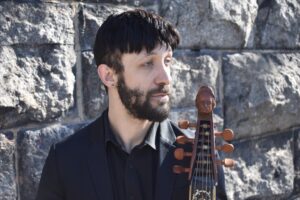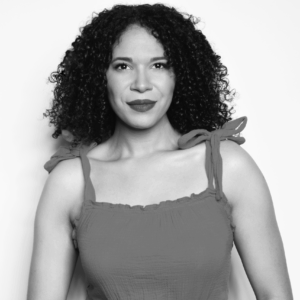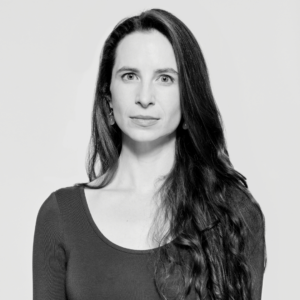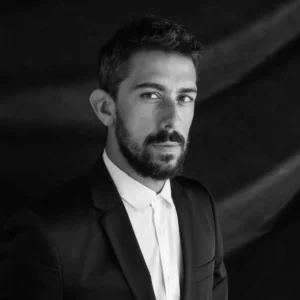THE COMET/POPPEA
The Comet / Poppea
New York Premiere
June 18, 19, 20 at 8:30 pm
June 20 & 21 at 3:00 pm
David H. Koch Theater
90 minutes, no intermission
Performed in English and Italian with English supertitles
Concept and Direction Yuval Sharon
The Comet Composer George Lewis
The Comet Libretto Douglas Kearney (based on a short story by W.E.B. Du Bois)
L’incoronazione di Poppea Composer Claudio Monteverdi
L’incoronazione di Poppea Libretto Giovanni Francesco Busenello
Music Director Marc Lowenstein
Scenic Design Mimi Lien
Lighting Design John Torres
Costume Design Oana Botez
Sound Design Mark Grey
Dramaturgy Robert Gooding-Williams and Wendy Heller
Ottone / Virtue Amanda Lynn Bottoms
Poppea Kearstin Piper Brown
Nero / Julia’s father Anthony Roth Costanzo*
Julia Kiera Duffy
Seneca Evan Hughes
Love / Nellie Joelle Lamarre
Ottavia / “Friend” / Fortune Whitney Morrison
Jim / Mercury Davóne Tines*
Percussion Jonny Allen*
Double Bass Doug Balliett*
Viola Miranda Cuckson*
C Flute, Piccolo, Bass Flute Emi Ferguson*
Harpsichord Elliot Figg
Violin Keir GoGwilt*
Cello Coleman Itzkoff*
Theorbo Paul Holmes Morton
Piano Richard Valitutto
Baroque Cello Adam Young
* AMOC* Company Member
The Comet, composed by George Lewis with Libretto by Douglas Kearney, was commissioned by AMOC* and premiered at MOCA Geffen in June 2024. Published by C.F. Peters Corporation.
Produced by Anthony Roth Costanzo and Cath Brittan, AMOC* (American Modern Opera Company), The Industry, Curtis Institute of Music, Yale Schwarzman Center, and Michigan Central Art. The AMOC* and Lincoln Center presentation of The Comet / Poppea is produced in collaboration with THE OFFICE performing arts + film.
The Comet / Poppea is made possible with generous support from Lead Sponsor Ellen Michelson. Additional major support for The Comet / Poppea is provided by Founding Sponsors: Carol Stein, Diamonstein-Spielvogel Foundation, Jeff Goodby, and T. June & Simon K.C. Li Charitable Fund.
Major support to develop the Run AMOC* Festival is provided by C. Graham Berwind, III, Stephen A. Novick, and Bruce and Suzie Kovner. Support to develop the Festival is provided by Paul Buttenwieser, Pat and Bill O’Connor, Jane Toll, and Robert Turner. Additional support to develop the Festival is provided by Barbara Glauber, Helen Little, Sarah Billinghurst Solomon, and Susan and David Young.
Premiered December 2018 at The Met Cloisters, Fuentidueña Apse, New York, NY
Production photos by Nina Westervelt
On L’incoronazione di Poppea
By Wendy Heller
E pur io torno qui, qual al linea al centro
qual foco a sfere e qual ruscello al mare
And I still return like a line to the center
Like fire to the sun and stream to the sea
– Ottone, Act I, 1 L’incoronazione di Poppea
Like Ottone, drawn to the palace of his beloved Poppea, I, too, have been drawn to Claudio Monteverdi’s final opera “like a line to its center”—or a comet heading relentlessly toward earth. An artifact of the carnivalesque, libertine culture of mid–17th-century Venice, Poppea is an opera in which the murderous habits and perversions of the Julio-Claudians are draped in Monteverdi’s most erotic music, as if the elder composer wanted to show what might happen if words truly became the mistress of the music. And if the opera turns Roman history somewhat on its head, ending with the passionate love duet between Nerone and Poppea—who celebrate the deaths of the virtuous Seneca and Octavia—why should we care? After all, history tells us that within two years Nerone will murder Poppea (a kick while pregnant). Librettist Giovanni Francesco Busenello summed it up nicely in his argomento: “All this according to Cornelius Tacitus, but here we represent things differently.”
Here we represent things differently. Indeed. Surprisingly, the mesh of a W. E. B. Du Bois’s chilling science-fiction tale that reveals racism in 20th-century America with an exposé of corruption in Imperial Rome echoes something of the Venetian delight in weaving together multiple tales in a single opera. Here, too, the juxtaposition and layering of one opera on top of another illuminates unexpected commonalities of plot (both are cautionary tales about loss, triumph, and the crushing inevitability of history) and of music (George Lewis’s powerful score brilliantly responds to, punctuates, disrupts, and magnifies Monteverdi’s subversive expressiveness, capturing the horror, romance, and despair of Douglas Kearney’s searing libretto). The lament of the abandoned Octavia, the “disprezzata regina,” gains even more pathos when heard adjacent to Jim’s cry, “I have lost everything”; the excessive eroticism of Poppea and Nerone’s duets can be heard as unspoken desire between Jim and Julie. Merging the traumas of the ancient and modern world, The Comet / Poppea demolishes the boundary between presentism and our obsession with authenticity, providing a novel path forward for this troublesome, beloved genre.
On The Comet
Robert Gooding-William
“The Comet” is the tenth chapter of Du Bois’s Darkwater (1920), a book that considers European imperialism, WWI, and the East St. Louis Race Riots, all in the perspective of Du Bois’s democratic ideals and his conception of beauty. When a “new comet” strikes the earth, it kills millions, in part through the release of “deadly gases.” In New York, just two people seem to be left alive: Jim, a working-class black man, and Julia, a beautiful and well to do white woman.
For most of the story Jim and Julia are alone, and during that time they imagine themselves as the sole survivors of the comet catastrophe, and as the soon-to-be progenitors of a new race and a new world. Vague allusions to the Biblical apocalypse abound in Du Bois’s science fiction, as Jim and Julia anticipate the prospect of replacing a world wherein differences of class and race structure social life with a world within which such differences cease to exist.
In Jim and Julia’s utopian vision, there is no ugliness. As in Revelations 21, where the advent of “a new heaven and a new earth” is said to entail that “there shall be no more death, neither sorrow, nor crying, neither shall there be any more pain,” Jim and Julia’s vision of a new earth seems similarly to lack anything of the ill and hate and hurt that Du Bois elsewhere says will always be with us. For a few moments they fantasize a world in which “all is beauty.” But their fantasy is short lived, for with the ugly “Honk! Honk!” of the car that announces the arrival of Julia’s father and boyfriend, they are confronted with the resurgence of class and racial hierarchies. The story concludes on a note at once tragic and hopeful—with Jim discovering that the comet has killed his baby son, but that it has spared his wife whom he joyfully embraces.
George Lewis
I began writing the music for The Comet / Poppea under pandemic conditions in 2020 and 2021 in Berlin, where I was in residence with my family. While I was writing, I was making myself into a kind of busybody—sticking my nose into German cultural affairs, going on TV and the radio in my fractured German speech to suggest (or request) that the German and European world of contemporary classical music decolonize itself by thinking about some of the Afrodiasporic composers who, for no particularly good reason, have been absent from concert programming there. I imagined these absences as a huge hole in the roof: the rain was getting in and making a mess of the place. And I was writing this music while asking people to think about that image.
With my first opera, Afterword, there was no improvising: every word was written from start to finish. It was another kind of world—and I operate in that model quite a bit. But The Comet/Poppea is truly a different kind of experience, one with less autonomy. The music I wrote for this work would, I knew, exist as potential rather than as a complete description of the experience. For one thing, in Monteverdi, I had a co-composer. He’s not around anymore, but he still exercised considerable influence.
Du Bois’s short story “The Comet” was written in 1924, and these days, it’s considered a kind of proto-Afro-futurist text. The story is set in contemporary New York City (which, for Du Bois, was the 1920s) after a comet hits the earth, while The Coronation of Poppea unfolds in ancient Rome, where the emperor is seized with love for a woman who is not his wife. Many parallels between these two cities have been considered over the centuries, so that pairing comes with a kind of doubling. The Comet / Poppea plays with that dynamic: the two stories start to unfold in parallel worlds of time and space. As the piece goes on, those two worlds start to leak into each other. Drawing on Du Bois’s own concept of double consciousness, the opera is structured around a number of these doublings: points of repetition or intersection that underscore the dialogue between the two works and the relevance of that dialogue today.
Both “The Comet” and The Coronation of Poppea deeply engage power and sexuality. We see this in the doubled couplings in each story: on one side of the veil, as DuBois has called it, we have his characters Julia and Jim. Jim is working-class and Black, while Julia is a white woman from the one percent. Julia isn’t really aware of the power of whiteness, but Jim certainly is. On the other side, we see Poppea, a noblewoman, and Nerone (the emperor Nero). Both of these relationships remind us that while it is possible for sexuality to transcend certain social divisions, it can also reveal and reinforce them, sometimes with bloody consequences. Seneca, the Stoic philosopher, is one of the early casualties of Nerone and Poppea’s love: he is ordered to a blameless death for daring to object to the mad emperor’s designs. During my writing process, as I was in touch with my collaborators and my students about repeated incidents of violence unfolding in the news, it struck me that Black people are often ordered to be Stoic under these conditions—to accept the brutality of a capricious power without resistance. In “The Comet,” I think we see a bit of that expectation and its consequences in Jim’s character, so that’s yet another doubling.
Then there are the comets themselves. During my research process, I found that Seneca writes about the ways that comets were seen as portents of good fortune in ancient Rome, and I think that they are regarded similarly in our own time. Du Bois plays with this fantasy in his short story, highlighting and questioning the sense of earthly hope or anticipation that gets attached (often ineffectually) to celestial events. Considering Du Bois’s work as a sociologist, I’ve come to think of “The Comet” as a kind of thought experiment, unfolding in a rather dystopian situation. Everyone on the planet has been destroyed except for these two people—or so they think. So what happens when the large-scale social forces underpinning white supremacy are absent?
I believe that it’s important to be honest about, and to honestly grapple with, the Afropessimist dimensions of Du Bois’s fictional experiment. Despite the possibility for a new order at the beginning of the story, “The Comet ” ultimately reminds us just how easily hierarchies as old as empire can return. Even when the veil is removed, it turns out that it has already affected us: it’s a type of radiation that has altered our DNA, and not for the better. So we must work even harder to remove it.
Douglas Kearney
Juxtaposition fascinates me. It powers much figurative imagining and forms ligatures of associative thinking. In the field of contrast, productive tension, and surprising chime, juxtaposition, by holding the dissimilar in a curious intimacy, helps us become aware of possibilities we maybe didn’t intuit.
Case in point: director Yuval Sharon and composer George E. Lewis’s wild idea to pair a proto-Opera of the Italian court and a work of 1920s AfroFuturism.
The Comet / Poppea is the crossroads of this pairing.
In writing the libretto for The Comet / Poppea, however, I wasn’t explicitly tasked with looking for similarities between Monteverdi’s L’incoronazione Di Poppea and W.E.B. DuBois’s “The Comet.” That was excellent. Because, as a general rule, I distrust that kind of juxtaposition—the kind you find in metaphor and simile—as it makes lyrical the idea of false equivalence, whets a hunger for hunting out versions of ourselves in what is different, rather than working to understand particularities in divergence.
Instead, what excited me about paralleling these two stories along the ill trajectory of a comet, a side-winding bad sign, cousin, perhaps of the one that Tacitus noted, 50 years after Nero’s death, portended changes in rule, was how proximity warps them, bends them, each in turn.
L’incoronazione Di Poppea follows, positively it seems, an affair between a noblewoman, Poppea and the Roman emperor, Nero. How her manipulations and his abuse of power lead to their triumphant marriage. In “The Comet,” the titular object kills a massive population in the early 20th century, sparing one Black man, Jim, and one white woman, Julia. They realize, with an almost divine sense of purpose, that they must repopulate humankind. I am interested in the pressure and pull of these stories, what they demand of each other and what 21st century opera demands of each of them. To that end, it was important that the stories survive in The Comet / Poppea; I didn’t write this libretto as a remix of either. Said plainly, I think of this opera as an adaptation, but one in which the sources are adapted to each other and not the genre of opera itself.
In our opera, DuBois’s comet tears time and space in its burning cold wake, creating a 1920s Manhattan where a radio acts as both a chorus and portal to a stylized/stymied first century Rome. In accordance with the ultimate bleakness of “The Comet,” and the historical vestments of the Monteverdi, any vision of possibility won’t appear via peering through this tattered portal. Even our opera’s deities use it without knowing its architect. This is because, here, we’ve made myth and sci-fi subject to folklore. Humbler, sure—but under its logic, characters from Heaven and Harlem got to make do. Those that force their will are the most grotesque. In The Comet / Poppea, transformation happens, just as a cold breeze, indeed, makes you colder for a time. But in such a breeze, you not only remain in your skin, you are keenly reminded of it.
The nature of change—what comes permanent, what won’t stay—haunts this libretto. As Jim, sings upon his entrance:
Where I come from, disaster is a home away from home.
I visit on vacation and I stay there when I roam.
When I swear I’m fixed to leave, I know I’m nearly there
and yesterday they would not have served me here.
See: The Comet / Poppea isn’t an exercise of pessimism, but an opportunity to play the changes in the changing same. Like folklore, like the Blues, or like a comet come round again, there’s always something to learn with another telling. Finding oneself at a crossroads simply increases the likelihood that something will come around.
THE ANNUNCIATION
THE ANNUNCIATION
Rosario Castellanos (Mexico, 1925 – 1974)
from The Sterile Virgin (1950)
Because since the beginning you were destined to be mine.
Before the ages of wheat and of the lark
and even before the fishes.
When God had nothing more than horizons
of unlimited blue and the universe
was a will not yet pronounced.
When everything lay in the divine lap,
intermingled and confused,
you and I lay there, complete, together.
Because since the beginning you were destined to be mine.
And here, you announce yourself.
Among contradictory angels you approach,
pouring yourself like a soft music,
like a glass of aromas and balsams.
You exalt my humility,
Your gaze, benevolent,
Transforms my wounds into ardent splendors.
And now, you approach
And you find me surrounded by prayers
Like high leaping flames.
LA ANUNCIACIÓN (extracto)
Rosario Castellanos (México, 1925 – 1974)
de De la vigilia estéril (1950)
Porque desde el principio me estabas destinado.
Antes de las edades del trigo y de la alondra
y aun antes de los peces.
Cuando Dios no tenía más que horizontes
de ilimitado azul y el universo
era una voluntad no pronunciada.
Cuando todo yacía en el regazo
divino, entremezclado y confundido,
yacíamos tú y yo totales, juntos.
Porque desde el principio me estabas destinado…
He aquí que te anuncias.
Entra contradictorios ángeles te aproximas,
como una suave música te viertes,
como un vaso de aromas y de bálsamos.
Por humilde me exaltas,
Tu mirada, benévola,
Transforma mis llagas en ardientes esplendores.
He aquí que te acercas
Y me encuentras rodeada de plegarias
Como de hogueras altas.
SE HABLA DE GABRIEL
1. SE HABLA DE GABRIEL *
Rosario Castellanos (México, 1925 – 1974)
Como todos los huéspedes
mi hijo me estorba ocupando un lugar que era mi lugar
existiendo a deshonra,
haciéndome partir en dos cada bocado.
Fea, enferma, aburrida,
lo sentía crecer a mis expensas,
robarle su color a mi sangre,
añadir un peso y un volumen clandestinos
a mi modo de estar sobre la tierra.
Su cuerpo me pidió nacer, cederle el paso;
darle un sitio en el mundo,
la provisión de tiempo necesaria a su historia.
El paso, el paso.
Consentí.
Y por la herida en que partió,
por esa hemorragia de su desprendimiento
se fue también lo último que tuve de soledad,
de yo mirando trás de un vidrio.
Quede abierta, ofrecida
a las visitaciones, al viento
Quedé abierta a la presencia.
* El hijo del poeta Castellano, Gabriel, nació en 1961.
Apocryphal Gospel of James
(coda of GABRIEL WAS SPOKEN OF)
Now I, Joseph, was walking about
and I looked up and saw the heaven standing still,
and I observed in amazement,
and the birds of heaven at rest.
I looked down at the earth
and I saw a vessel lying there,
and workmen reclining,
and their hands were in the vessel.
Those who were chewing did not chew.
Those who were lifting did not lift up,
and those who were carrying to their mouths
did not carry, but all faces were looking upward.
I saw sheep standing still,
and the shepherd raised his hand to strike them,
but his arm remained up.
I observed the streaming river,
and I saw the mouths of the kids and the water,
but they were not drinking.
The winds stopped; they made no sound:
there was no motion of tree leaves.
The streams did not flow;
there was no motion of the sea.
The maiden stood looking intently into heaven.
1. TALK OF GABRIEL *
Rosario Castellanos (Mexico, 1925 – 1974)
Like all my guests my son impeded me,
occupying a place that was my place,
existing at inopportune times,
making me divide each bite in two.
Ugly, sick, bored,
I felt him grow at my expense,
steal the color from my blood,
add clandestine weight and volume
to my way of being on the earth.
His body asked to be born, to yield to his passing,
to give him his place in the world
the provision of time necessary for his history.
I consented.
And through the wound of his departure,
through the hemorrhage of his detachment,
also went the last of my solitude,
looking alone behind a glass.
I remained open, offered
to the visitations, to the wind,
to presence.
* Poet Castellano’s son, Gabriel, was born 1961
Evangelio apócrifo de Jacobo
(coda de SE HABLA DE GABRIEL)
Ahora yo, José, caminaba,
y miré hacia arriba y ví detenido el Cielo,
y observé en asombro,
y las aves del Cielo en descanso.
Y miré hacia abajo a la tierra
y ví allí una vasija,
y los obreros reclinaban,
y sus manos dentro de la vasija.
Aquellos que masticaban no masticaron.
Aquellos que levantaban no levantaron,
y aquellos que no comían
no comieron, pero todos miraban hacia arriba
Ví ovejas detenidos en su lugar,
y el pastor levantaba la mano para golpearlas,
pero su brazo permaneció en alto.
Y observé el río que fluye,
y ví las bocas de los corderos y el agua,
pero no bebían.
Y los vientos se detuvieron en silencio:
no había movimiento en las hojas de los árboles
Los arroyos no fluían;
no había movimiento en el mar.
La doncella se quedó mirando intensamente al Cielo.
MAGNIFICAT
2. MAGNIFICAT
King James Version (1604 – 1611)
Luke 1: 46-55
And Mary said,
My soul doth magnify the Lord,
and my spirit hath rejoiced in God my Saviour.
For he hath regard the low estate of his handmaiden:
for, behold, from henceforth,
all generations shall call me blessed.
For he that is mighty hath done to me great things;
and holy is his name.
And, his mercy is on them that fear him
from generation to generation.
For he hath shown his strength with his arm;
he hath scattered the proud
He hath put down the mighty from their seats,
and exalted them of low degree.
He hath filled the hungry with good things,
and the rich he hath sent empty away.
He hath helped his servant Israel
in remembrance of his mercy;
As he spake to our fathers, to Abraham,
and to his seed for ever.
2. MAGNIFICAT
Reina-Valera Versión
San Lucas 1: 46-55
Entonces María dijo:
Engrandece mi alma al Señor;
Y mi espíritu se alegró en Dios mi Salvador.
Porque ha mirado á la bajeza de su criada;
porque he aquí, desde ahora
me dirán bienaventurada todas las generaciones.
Porque me ha hecho grandes cosas el Poderoso;
y santo es su nombre.
Y su misericordia de generación á generación
á los que le temen.
Hizo valentía con su brazo:
esparció los soberbios
Quitó los poderosos de los tronos,
y levantó á los humildes.
A los hambrientos hinchió de bienes;
y á los ricos envió vacíos.
Recibió á Israel su siervo,
acordándose de la misericordia,
Como habló á nuestros padres á Abraham
y á su simiente para siempre.
SHAKE THE HEAVENS
3. SHAKE THE HEAVENS
King James Version (1604 – 1611)
Haggai 2: 6-7
For thus saith the Lord […] :
Yet once, it is a little while,
and I will shake the heavens
and the earth and the sea and the dry land.
And the desires of all the nations shall come.
And I will fill this house with glory.
And in this place, I will give peace.
They drew near to Bethlehem.
They were three miles distant,
and Joseph turned and saw Mary weeping
and he said
“Probably that which is in her is distressing her.”
Once again Joseph turned and saw her laughing,
and he said:
“Mary, how is it that I see your face at one moment laughing and at another time weary?”
She said to Joseph,
“It is because I see two peoples with my eyes,
the one weeping and mourning,
the other rejoicing and glad.”
3. SACUDE LOS CIELOS
Reina-Valera Version
Haggeo 2: 6-7
Porque así dice Dios […]:
De aquí á poco aun haré
yo temblar los cielos
y la tierra, y la mar y la seca.
Y vendrá el Deseado de todas las gentes.
y henchiré esta casa de gloria,
y daré paz en este lugar.
Evangelio apócrifo de Santiago
Se acercaron hacia Belén.
Estaban a tres millas de distancia,
y volteó José y vió a María llorar
y dijo
“Probablemente lo que hay en ella la está angustiando.”
Otra vez volteó José y la vió reir,
y dijo:
“María ¿cómo es que veo tu rostro unas veces
riendo y otras veces cansada?”
Le dijo a José,
“Es porque veo en mis ojos dos pueblos,
el que llora y se lamenta,
el otro regocijado y contento.”
PUES MI DIOS NACIDO A PENAR
4. PUES MI DIOS NACIDO A PENAR – VILLANCICO V *
(NAVIDAD, 1689, no. 287)
Sor Juana Inés de la Cruz (Mexico, 1648 – 1695)
Pues mi Dios ha nacido a penar,
déjenle velar.
Pues está desvelada por mi
déjenle dormir.
Déjenle velar,
que no hay pena, en quien ama,
como no penar.
Déjenle dormir,
que quien duerme, en el sueño
se ensaya a morir.
Silencio, que duerme.
Cuidado, que vela…
Déjenle velar.
Déjenle dormir.
4. BECAUSE MY LORD WAS BORN TO SUFFER
(CHRISTMAS, 1689, no. 287)
Sor Juana Inés de la Cruz (Mexico, 1648 – 1695)
Since my God was born to suffer,
let him stay awake.
Since he stays awake for me,
let him sleep.
Let him stay awake,
for there is no pain,
in one who loves as if there’s no suffering.
Let him sleep,
for one who sleeps,
while dreaming, rehearses death.
Silence, let him sleep.
Take care, let him stay awake…
Let him stay awake.
Let him sleep.
WHEN HEROD HEARD
5. WHEN HEROD HEARD
King James Version (1604 – 1611)
Matthew 2: 1-3, 7-8
Now when Jesus was born in Bethlehem of Judea
in the days of Herod the king, behold,
there came wise men from the east to Jerusalem, saying,
“Where is he that is born King of the Jews?
for we have seen his star in the East
and have come to worship him.”
Now when Herod the king had heard these things,
he was troubled […] and he privily called his wise men,
inquired of them diligently what time the star appeared.
And he sent them to Bethlehem, saying,
“Go and search diligently for the young child;
and when you have found him bring me word again
that I may come and worship him also.”
5. CUANDO HERODES ESCUCHÓ
Reina-Valera Version
San Mateo 2: 1-3, 7-8 (p. 2391)
Y como fué nacido Jesús en Bethlehem de Judea
en días del rey Herodes,
he aquí unos magos vinieron del oriente á Jerusalem, Diciendo:
¿Dónde está el Rey de los Judíos, que ha nacido?
porque su estrella hemos visto en el oriente,
y venimos a adorarle.
Y oyendo esto el rey Herodes,
se turbó,[…] y llamando en secreto á los magos,
entendió de ellos diligentemente el tiempo del aparecimiento de la estrella;
Y enviándolos á Bethlehem, dijo:
Andad allá, y preguntad con diligencia por el niño;
y después que le hallareis, hacédmelo saber,
para que yo también vaya y le adore.
AND THE STAR WENT BEFORE THEM
6. AND THE STAR WENT BEFORE THEM
King James Version (1604 – 1611)
Matthew 2: 9, 11
When they had heard the king, they departed;
and, lo, the star which they saw in the east,
went before them,
till it came and stood over where the young child was.
And when they were come into the house,
they saw the young child with Mary his mother,
and fell down and worshiped him:
and when they had opened their treasures,
they presented unto him gifts;
gold, frankincense, myrrh.
6. Y LA ESTRELLA IBA DELANTE DE ELLOS
Reina-Valera Version
Mateo 2: 9, 11 (p. 2392)
Y ellos, habiendo oído al rey, se fueron:
y he aquí la estrella que habían visto en el oriente,
iba delante de ellos,
hasta que llegando, se puso sobre donde estaba el niño.
Y entrando en la casa,
vieron al niño con su madre María,
y postrándose, le adoraron;
y abriendo sus tesoros, le ofrecieron dones,
oro é incienso y mirra.
THE THREE WISE KINGS ( LOS TRES REYES MAGOS)
7. THE THREE WISE KINGS*
Rubén Darío (Nicaragua, 1867 – 1916)
– I am Gaspar. I have brought frankincense.
and I have come here to say: that life is good.
That God exists. I have come here to say that love is
everything.
I know it is so because of the heavenly star!
– I am Melchior.
I have brought fragrant myrrh
Yes, God exists. He is the light of day.
The whitest flower is rooted in the mud.
And all delights are tinged with melancholy!
– I am Balthasar. I have brought gold. I assure you
God exists. He is great and strong.
Know it is so because of the perfect star
that shines so brightly in Death’s diadem.
– Gaspar, Melchior, Balthasar, be still.
Love has triumphed and bids you to its feast.
Christ reborn turns chaos into light,
and on his brow, He wears the crown of life!
*originally written in Spanish and translated into English for
this piece
7. LOS TRES REYES MAGOS
Rubén Darío (Nicaragua, 1867 – 1916)
– Yo soy Gaspar. Aquí traigo el incienso.
Vengo a decir: La vida es pura y bella.
Existe Dios. El amor es inmenso.
¡Todo lo sé por la divina Estrella!
– Yo soy Melchor.
La mirra aroma todo.
Existe Dios. Él es la luz del día.
La blanca flor tiene sus pies en lodo.
¡Y en el placer hay la melancolía!
– Soy Baltasar. Traigo el oro. Aseguro
que existe Dios. Él es el grande y fuerte.
Todo lo sé por el lucero puro
que brilla en la diadema de la Muerte.
– Gaspar, Melchor y Baltasar, callaos.
Triunfa el Amor, y a su fiesta os convida.
¡Cristo resurge, hace la luz del caos
y tiene la corona de la Vida!
AND WHEN THEY WERE DEPARTED
8. AND WHEN THEY WERE DEPARTED
King James Version (1604 – 1611)
Matthew 2: 13
And when they were departed,
behold, the angel of the Lord,
appeared to Joseph in a dream, saying,
“Arise and take the young child
and his mother and flee into Egypt,
and be thou there until I bring thee word:
for Herod will seek the young child to destroy him.”
8. Y CUANDO SE FUERON
Reina-Valera Version
San Mateo 2: 13 (p. 2392)
Y partidos ellos,
he aquí el ángel del Señor
aparece en sueños á José, diciendo:
Levántate, y toma al niño
y á su madre, y huye á Egipto,
y estáte allá hasta que yo te lo diga;
porque ha de acontecer, que Herodes buscará al niño para matarlo.
AND HE HATH SLEW ALL THE CHILDREN
9. AND HE HATH SLEW ALL THE CHILDREN
King James Version (1604 – 1611)
Matthew 2: 16
Then Herod, when he saw that he
was mocked [by] the wise men,
was exceeding wroth, and he sent forth,
and he slew all the children that were in Bethel.
9. Y MATÓ A TODOS LOS NIÑOS
Reina-Valera Versión
Mateo 2: 16 (p. 2392)
Herodes entonces, como se
vió burlado de los magos,
se enojó mucho, y envió,
y mató á todos los niños que había en Bethlehem.
MEMORIAL DE TLATELOLCO
10. MEMORIAL DE TLATELOLCO
Rosario Castellanos (México, 1925 – 1974)
La oscuridad engendra la violencia
y la violencia pide oscuridad
para cuajar el crimen.
Por eso el dos de octubre aguardó hasta la noche
para que nadie viera la mano que empuñaba
el arma, sino sólo su efecto de relámpago.
¿Y a esa luz, breve y lívida, quién? ¿Quién es el que
mata?
¿Quiénes los que agonizan, los que mueren?
¿Los que huyen sin zapatos?
¿Los que van a caer al pozo de una cárcel?
¿Los que se pudren en el hospital?
¿Los que se quedan mudos, para siempre, de espanto?
¿Quién? ¿Quiénes? Nadie. Al día siguiente, nadie.
La plaza amaneció barrida; los periódicos
dieron como noticia principal
el estado del tiempo.
Y en la televisión, en el radio, en el cine
no hubo ningún cambio de programa,
ningún anuncio intercalado ni un
minuto de silencio en el banquete.
(Pues prosiguió el banquete.)
No busques lo que no hay: huellas, cadáveres
que todo se le ha dado como ofrenda a una diosa,
a la Devoradora de Excrementos.
No hurgues en los archivos
pues nada consta en actas.
Ay, la violencia pide oscuridad
porque la oscuridad engendra sueño
y podemos dormir soñando que soñamos.
Mas he aquí que toco una llaga: es mi memoria.
Duele, luego es verdad. Sangra con sangre
y si la llamo mía traiciono a todos.
Recuerdo, recordamos.
Ésta es nuestra manera de ayudar a que amanezca
sobre tantas conciencias mancilladas,
sobre un texto iracundo sobre una reja abierta,
sobre el rostro amparado tras la máscara.
hasta que la justicia se siente entre nosotros.
10. IN MEMORY OF TLATELOLCO
Rosario Castellanos (Mexico, 1925 – 1974)
Darkness engenders violence
and violence demands darkness
to coagulate the crime.
That is why October the second waited until night
So that no one could see the hand that gripped
The weapon, but only its lightning flash effect.
And in that light, brief and pallid, who? Who is it
that kills? Who are those who agonize? those who die?
Those who flee without shoes?
Those who run to fall into the pit of a prison?
Those who rot in the hospital?
Those who remain mute, forever, with terror?
Who? Who? No one. On the following day, no one.
Dawn broke on the plaza cleanly swept **;
the newspapers reported as the main news
the state of the weather.
And on the television, on the radio, in the cinema
there was no change of program,
no interrupting news bulletin, nor even one
minute of silence at the banquet.
(Thus the banquet proceeded.)
Don’t search for that which is not there: traces, corpses
for all has been given as offering to a goddess,
to the Devourer of Excrements. +
Do not rummage through the archives
for nothing has been recorded.
Oh, violence calls for violence
because darkness breeds sleep
and we can sleep dreaming that we sleep.
But behold, I touch a wound: it is my memory,
It hurts, then it is true. Bleed with blood
and if I call it mine, I betray everyone.
I remember, we remember.
It is our way of awakening
amidst so many tainted consciences,
amidst an angry text, amidst an open gate,
amidst a face concealed behind a mask.
until justice is felt by us all.
* written after the military and police massacred students
and
civilians protesting the government in the Plaza de las
Tres Culturas on October 2, 1968, in the Tlatelolco
section of Mexico City.
** literal translation: “the plaza day-break sweep”;
“barrida” can be translated as: to sweep clean;
a political sweep; or a slaughter
+ refers to the goddess Tlazoltéotl, the Devourer of
Excrement
PUES ESTÁ TIRITANDO
11. PUES ESTÁ TIRITANDO
King James Version (1604 – 1611)
Isaiah 30: 25, 26
IN THE DAYS OF THE GREAT SLAUGHTER
In the days of the great slaughter, when the towers fall,
the light of the moon shall be the light of the sun,
and the light of the sun shall be sevenfold,
as the light of seven days […]
And there shall be upon ev’ry high mountain
and upon ev’ry high hill, rivers and streams of waters.
Sor Juana Inés de la Cruz (México, 1648 – 1695)
POR CELEBRAR DEL INFANTE – VILLANCICO I *
(NAVIDAD, 1689, no. 283)
1––Pues está tiritando
Amor en el hielo,
y la escarcha y la nieve
me lo tienen preso,
¿quién le acude?
2––¡El Agua!
3––¡La Tierra!
4––¡El Aire!
1––¡No, sino el Fuego!
Pues el Niño fatigan
sus penas y males,
y a sus ansias no dudo
que alientos le faltan,
¿quién le acude?
2––¡El Fuego!
3––¡La Tierra!
4––¡El Agua!
1––¡No, sino el Aire!
Pues el Niño amoroso
tan tierno se abrasa
que respira en Volcanes
diluvios de llamas,
¿quién le acude?
2––¡El Aire!
3––¡El Fuego!
4––¡La Tierra!
1––¡No, sino el agua!
Si por la tierra el Niño
los Cielos hoy deja,
y no halla en qué descanse
su Cabeza en ella,
¿quién le acude?
2––¡El Agua!
3––¡El Fuego!
4––¡El Aire!
1––¡No, mas la Tierra!
11. FOR HE IS SHIVERING
Reina-Valera Version
Isaías 30: 25, 26
EL DÍA DE LA GRAN MATANZA
En el día de la gran matanza, cuando caerán las torres,
la luz de la luna será como la luz del sol,
y la luz del sol siete veces mayor,
como la luz de siete días,
Y sobre todo monte alto,
y sobre todo collado subido, habrá ríos y corrientes de aguas
Sor Juana Inés de la Cruz (Mexico, 1648 – 1695)
TO CELEBRATE THE INFANT
(CHRISTMAS, 1689, no. 283)
1––Since Love is shivering
on the ice, and the frost and the snow
have imprisoned him from me,
Who attends to him?
2––The Water!
3––The Earth!
4––The Air!
1–– No, but the Fire will!
Since the Child becomes exhausted
with pains and ills,
and his anxieties no doubt
leave him breathless
Who attends to him?
2––The Fire!
3––The Earth!
4––The Water!
1––No, but the Air will!
Since the loving, tender Child,
burns himself
as he breathes floods of flames
like in Volcanoes,
Who attends to him?
2––The Air!
3––The Fire!
4––The Earth!
1––No, but the Water will!
Since the Child today
leaves the heavens for the earth,
and can find here
some place to rest his head,
Who attends to him?
2––The Water!
3––The Fire!
4––The Air!
1––No, but the Earth will!
* villancico was a common poetic and musical form of
Latin America, popular from the late 15th to 18th centuries.
With the decline in popularity of the villancicos in the 20th
century, the term became reduced to mean merely
Christmas carol.
A PALM TREE
12. A PALM TREE
Two works interwoven
I. Apocrypha of the New Testament
Gospel of Pseudo-Matthew 20
And so it happened
that on the third day after their departure
Mary was fatigued by the heat of the sun in the dessert
And seeing a palm tree said to Joseph
“I want to rest a bit under its shadow.”
Joseph quickly led her to the palm
and let her get down from the animal
While Mary sat,
she looked up at the top of the palm
and saw it full of fruit.
She said to Joseph,
“I wish I might have some fruit from this tree.”
Joseph said to her,
“I am astonished that you say this,
when you see how high this palm tree is.
You think to eat from the fruit of the palm,
but it is not possible.
I think more of the lack of water,
which already fails us.
We now have nothing by which we can refresh ourselves
and the animal.”
Then, the infant Jesus,
who was resting with smiling face
on his mother’s lap,
said to the palm tree
“Bend down tree and refresh my mother with your fruit.”
And at this voice
the palm bent down its head to the feet of Mary,
and they gathered its fruit,
and all were refreshed.
Then Jesus said to it,
“Rise up, palm, and be strong,
be a companion of my trees
which are in my Father’s Paradise.
Open a water course beneath your roots
which is hidden in the Earth,
and from it let flow waters to satisfy us.”
And the palm raised itself at once,
and fountains of water,
very clear and cold and sweet,
began to pour out through the roots.
II. Rosario Castellanos (México, 1925 – 1974)
de El rescate del mundo (1952)
UNA PALMERA
(interpola en A PALM TREE)
Señora de los vientos,
garza de la llanura
cuando te meces canta
tu cintura.
Gesto de la oración
o preludio del vuelo,
en tu copa se vierten uno a uno
los cielos.
Desde el país oscuro de los hombres
he venido, a mirarte, de rodillas.
Alta, desnuda, única.
Poesía.
12. UNA PALMERA
Dos textos entrelazados
I. Apócrifa del Nuevo Testamento
Evangelio del pseudo-Mateo 20
Y así sucedió
que en el tercer día después de su partida
María estaba cansada por el calor del sol en el desierto
Y al ver una palmera le dijo a José
“Quiero descansar un poco debajo de su sombra.”
Rápidamente José la llevó hacia la palmera
y la bajó del animal
Mientras María se sentaba
miró hacia arriba a la palmera
y vió su fruta
Le dijo a José,
“Quisiera comer alguna fruta de este árbol.”
José le dijo,
“Me asombro a que me lo digas,
cuando veas qué tan alta está la palmera.
Piensas comer la fruta de la palmera,
pero esto no es posible.
Pienso más en la falta de agua,
que aun nos falla.
Ahora no temenos nada para refrescarnos y el animal
Y luego el niño Jesús,
quien descansaba con su rostro sonriente
en el regazo de su madre,
le dijo a la palmera
“Inclínate árbol y refresca a mi madre con tu fruto.”
Y al escuchar su voz
la palmera se inclinó a los pies de María,
y recogieron su fruta,
y todos se refrescaron.
Luego Jesús le dijo
“Levántate, palmera, y se fuerte,
se una compañera de mis árboles
que están en el Paraíso de mi Padre.
Abre un curso de agua debajo de tus raíces
escondidas en la Tierra,
y deja que fluyan las aguas para satisfacernos.”
Y la palmera se alzó en seguida,
y las fuentes de agua,
muy claras y frías y dulces,
comenzaron a brotar por todas las raíces.
Rosario Castellanos (Mexico, 1925 – 1974)
from The rescue of the world (1952)
A PALM
Lady of the winds,
heron of the plain
when you sway,
your waist sings.
Gesture of prayer
or prelude to the flight of wings,
into your cup are poured the heavens
one by one.
From the dark land of men
I have come, to look at you, kneeling.
Tall, naked, unique.
Poetry.
Company

ADAM YOUNG
Adam Young is a versatile performer specializing in the cello and viola da gamba. While majoring in viola da gamba at The Juilliard School under Sarah Cunningham, he performed principal roles in several opera productions, including Dido and Aeneas with Avi Stein—featured on a European tour with performances at London’s Opera in the Park and the Palace of Versailles—and Hippolyte et Aricie under the direction of Stephen Stubbs.
This year, Adam has performed with several distinguished ensembles, including Abendmusik, Academy of Sacred Drama, American Baroque, Canterbury Choral Society, Christopher Street Collective, House of Time, and Salon Sanctuary. Recent opera credits include Agrippina at Brooklyn College and Blood Moon at Baruch College. In addition to his work as a string player, Adam also serves as a pianist for New York City Ballet.

ALEXANDER GEDEON
Alexander Gedeon is a multidisciplinary artist and director of opera, concert-theater and music video. Over the past seven years Alexander has worked at the cutting edge of new American opera and theater alongside multiple Pulitzer Prize, MacArthur Fellow and Grammy award-winning artists. Career highlights include: ‘Everything Rises’ at the BAM Next Wave Festival (a New York Times Critic’s Pick); ‘Sanctuaries’ a ceremonial opera for Black neighborhoods lost to gentrification, staged at Portland’s Memorial Coliseum; Anna Deavere Smith’s new work on the juvenile justice system ‘This Ghost of Slavery’ at National Sawdust this fall, to be co-directed with Yuval Sharon. Last year Alexander premiered two music videos for Prince protégé Judith Hill — ‘Black Widow’ and ‘Dame de la Lumière’ — exclusively on Rolling Stone.
Other highlights include co-directing ‘Der Kaiser von Atlantis’ with Yuval Sharon at Miami New World Symphony; pantomiming alongside composer Daniel Corral in Concerto for Having Fun with Elvis on Stage at REDCAT; and re-imagining Peter Brook & Georges Bizet’s ‘La tragèdie de Carmen’ at San Diego Opera. He associate directed for Sharon at Lyric Opera of Chicago, Detroit Opera and the Los Angeles Philharmonic.
As a bandleader and composer, Alexander led the New York power-trio Trick & the Heartstrings, creating a live show London’s New Music Express acclaimed as “a supertight howl of righteous rhythm and blues with jaw-dropping pop twists,” working with legendary pop music producer Paul Epworth (Adele, Florence + the Machine). The band released music through 679 Records, a Warner Brothers subsidiary in the UK, and will issue a new recording on Oro Records in 2026.
Alexander has guest directed at San Francisco Conservatory of Music, New York University and guest lectured at the University of Southern California and Harvard. These projects have included interdisciplinary explorations of the music of Julius Eastman and the writings of Igor Stravinsky. He graduated summa cum laude from New York University’s Experimental Theatre Wing and trained at the Royal Academy of Dramatic Arts in London.

AMANDA LYNN BOTTOMS
Heralded for her “superb vocal and dramatic chops” by Opera News, with “stunning vocal beauty and absolute sincerity of expression” in Chicago Classical Review, mezzo-soprano Amanda Lynn Bottoms will begin her 2023-24 season performing concerts with the Moab Music Festival, followed by a brief residency at Skidmore College during which time she will sing Richard Danielpour’s song cycle The Unhealed Wound alongside Eric Owens. Other recent highlights include her mainstage debut at LA Opera as the Mother in Omar and Paquette in Candide with Philadelphia Orchestra and maestro Yannick Nézet-Séguin.
Bottoms is an alumna of the Cafritz Young Artist Program at the Washington National Opera, and has received recognition and awards from prestigious international competitions including the George London Foundation, the Gerda Lissner Foundation, and the Metropolitan Opera National Council Regionals. Bottoms holds a Master of Music degree from The Juilliard School and a Certificate of Professional Studies in Opera from the Curtis Institute of Music.

ANTHONY ROTH COSTANZO
Countertenor Anthony Roth Costanzo began performing professionally at the age of 11 and has since appeared in opera, concert, recital, film, and on Broadway. In June 2024, he began his tenure as the General Director and President of Opera Philadelphia. He has appeared with many of the world’s leading opera houses including the Metropolitan Opera, Lyric Opera of Chicago, San Francisco Opera, Opera National de Paris, English National Opera, Houston Grand Opera, Opera Philadelphia, Los Angeles Opera, Canadian Opera Company, Glyndebourne Opera Festival, Dallas Opera, Teatro Real Madrid, Spoleto Festival USA, Glimmerglass Festival (where he served as the 2023 Artist in Residence), and Finnish National Opera.
In concert he has sung with the New York Philharmonic (where he was named The Mary and James G. Wallach Artist-in-Residence for the 2021-22 season), The Cleveland Orchestra, National Symphony Orchestra, San Francisco Symphony, Met Orchestra Chamber Ensemble, Boston Baroque, Berlin Philharmonic, NDR at the Elbphilharmonie in Hamburg, and the London Symphony Orchestra, among others. He has also been presented in recital in Vancouver, Princeton University Concerts, Duke Performances, and at the Morgan Library in New York. He has performed at a wide-ranging variety of venues including Carnegie Hall, Lincoln Center for the Performing Arts, Versailles, The Kennedy Center, The Metropolitan Museum of Art, Jordan Hall in Boston, Wigmore Hall in London, National Sawdust, Minamiza Kyoto, Joe’s Pub, The Guggenheim, The Park Avenue Armory, and Madison Square Garden.
A champion of new work, Mr. Costanzo created roles in the world premieres of John Corigliano’s The Lord of Cries and Gregory Spears’ The Righteous at the Santa Fe Opera, Jimmy Lopez’s Bel Canto at the Lyric Opera of Chicago and Jake Heggie’s Great Scott at the Dallas Opera. He has also premiered works written for him by Joel Thompson, Matthew Aucoin, Paola Prestini, Gregory Spears, Viet Cuong, Carlos Simon, Suzanne Farrin, Bernard Rands, Scott Wheeler, Mohammed Fairouz, Steve Mackey, and Nico Muhly.
Mr. Costanzo works as a producer and curator in addition to his singing, creating shows for The BBC Proms, The New York Philharmonic, Opera Philadelphia, National Sawdust, the Philharmonia Baroque, The Barnes Foundation, St. John The Divine, Princeton University, WQXR, The State Theater in Salzburg, Master Voices and Kabuki-Za Tokyo. During the 2020-21 season, he created and produced the New York Philharmonic’s Bandwagon initiative, the orchestra’s innovative response to the pandemic. It began with 81 impromptu concerts in all five boroughs of New York City, where Mr. Costanzo, musicians from the orchestra, and other special guests performed a wide range of repertoire, including world-premiere commissions. It evolved into a series of festivals created with partner organizations throughout the city, which utilize the resources of the Philharmonic to center and amplify the voices of the community.

CATH BRITTAN
Originally from Manchester, England and now a resident of California, Cath’s recent and up-coming productions include Aci, Galatea e Polifemo (dir. Christopher Alden); Messiaen’s Des Canyons aux étoiles (w Deborah O’Grady) Glass Handel (2018 & 2019, BBC Proms 2022); Bandwagon (New York Philharmonic); Amadigi de Gaula (dir. Louisa Muller); 2018/19 and 19/20 Soundbox Season; San Francisco Symphony; Orphic Moments (dir. Zack Winokur); Perle Noir (Tyshawn Sorey & Julia Bullock); Arkhipov (composer Peter Knell); Birds in the Moon (Mark Grey, Elkhanah Pulitzer); …Ihpigenia (Wayne Shorter & Esperanza Spalding); The Hunting Gun (dir. François Girard); No One is Forgotten (Prestini / Shirey); Only an Octave Apart (dir. Zack Winokur); UnRavelled (dir. James Bonas), American Patriots (Yaniv Segal / Samantha Williams); In a Grove (Christopher Cerrone, Stephanie Fleischmann dir. Mary Birnbaum); Number our Days (Luna Pearl Wolff, David van Taylor); The Secret Sharer (DNAWORKS); We TheMessiah (Darian Dauchan, Daniel Banks) Kronos Quartet Triptych Project (25/26) and The Known Lost (Allado- McDowell, Skye, Fleischmann). Between 2018 and 2022 Cath was the producer for AMOC* (American Modern Opera Company).

COLEMAN ITZKOFF
Cellist and performer Coleman Itzkoff stands at the intersection of baroque/classical/new music, contemporary dance, and experimental theater. Whether premiering works by living composers and performing baroque music on historical instruments in the same concert, delivering enigmatic monologues in a piece of avant-garde dance theater, composing, arranging, and recording music for the Amazon film Le Bal des Folles, or simply playing solo Bach for hospital patients in the time of COVID, Coleman continues to push the boundaries of what it means to be a musician of the 21st century.
As a soloist, he has been featured soloist with many great orchestras, including recent appearances with the Houston, San Diego, and Cincinnati Symphonies. He is a dedicated member of the early music ensembles Ruckus and Twelfth Night, and is a founding member of AMOC. Coleman holds a Bachelors in Music from Rice University, a Masters in Music from USC, and an Artist Diploma from The Juilliard School.

DAVÓNE TINES
Heralded as a “singer of immense power and fervor” and “[one] of the most powerful voices of our time” by The Los Angeles Times, the “immensely gifted American bass-baritone Davóne Tines has won acclaim, and advanced the field of classical music” (The New York Times) through his work that blends opera, art song, contemporary classical, spirituals, gospel, and songs of protest, as a means to tell a deeply personal story of perseverance that connects to all of humanity. Called a “next generation leader” by Time Magazine and recently named Musical America’s 2022 Vocalist of the Year, Mr. Tines is a path-breaking artist at the intersection of many histories, cultures, and aesthetics.

DOUG BALLIETT
Doug Balliett is a composer, instrumentalist, and poet based in New York City. The New York Times described his compositions as “brainily bubble gum and lovable shaggy,” his poetry as “brilliant and witty,” and his bass playing as “elegant.” Doug is a professor of baroque bass and violone at The Juilliard School, and he leads the Theotokos ensemble every Sunday at St. Mary’s Church. He plays regularly with Les Arts Florissants, Jupiter Ensemble, ACRONYM, Ruckus, BEMF, Alarm Will Sound, and other ensembles. In 2021, five of his Ovid Cantatas were filmed for Qwest TV with William Christie, Lea Desandre, and Nick Scott.
For three years he and his twin brother hosted a weekly show dedicated to living composers on WQXR’s new music channel Q2. Upcoming performances of his work include Beast Fights at Tanglewood with the Boston Symphony bass section, and the annual New Year’s Eve performance of his opera Gawain and the Green Knight.

DOUGLAS KEARNEY
Poet, interdisciplinary writer, and performer Douglas Kearney grew up in Altadena, CA. He earned his BA from Howard University, his MFA from the California Institute of the Arts, and is a graduate and fellow of Cave Canem. Kearney’s full-length poetry collections include Fear, Some (2006), The Black Automaton (2009), which was chosen by Catherine Wagner for the National Poetry Series, and Patter (2014). He has also published many chapbooks. His poetry has appeared in several anthologies, including The Ringing Ear: Black Poets Lean South (2007), Spoken Word Revolution Redux (2007), Dark Matter: Reading the Bones (2005), and Role Call: A Generational Anthology of Social and Political Black Art & Literature (2002). Kearney’s honors include a Whiting Writers Award, a Pushcart nomination, and commissions for new work from Minneapolis’s Weisman Art Museum and New York’s Studio Museum. In 2007, he was named a Notable New American Poet by the Poetry Society of America. Kearney has also received fellowships and scholarships from the Idyllwild Summer Arts Poetry Workshop, Cave Canem, the Callaloo Creative Writing Workshops, and the Bread Loaf Writers’ Conference. He is the recipient of the Foundation for Contemporary Arts’ Cy Twombly Award. He teaches at the University of Minnesota, Twin Cities.

ELLIOT FIGG
Elliot Figg is a keyboardist, conductor and composer who lives in New York. He is a graduate of the Historical Performance Program at The Juilliard School where he studied harpsichord with Kenneth Weiss. He also studied with Arthur Haas at the Yale School of Music. Elliot is an active member of ACRONYM, Ruckus, and House of Time. Previous engagements include: Five Boroughs Music Festival, Through the Warping Lens, a concert featuring his own music; Conductor and harpsichordist for Haydn’s Jupiter’s Journey to Earth, Monteverdi’s Combattimento, Hasse’s Piramo e Tisbe, and St.-Georges’ L’Amant Anonyme, all with Little Opera Theatre of New York; Conductor and harpsichordist for Death of Classical’s productions of Dido and Aeneas and Hot Dogs, Hooch, & Handel in and around the catacombs of Green-Wood Cemetery; Deputy Music Director and harpsichordist for Farinelli and the King on Broadway.

EMI FERGUSON
A 2023 recipient of the Avery Fisher Career Grant, Emi Ferguson can be heard live in concerts and festivals with groups including AMOC*, Ruckus, the Handel and Haydn Society, the New York New Music Ensemble, the Manhattan Chamber Players, and as the music director of Camerata Pacifica Baroque. Her recordings celebrate her fascination with reinvigorating music and instruments of the past for the present. Her debut album, Amour Cruel, an indie-pop song cycle inspired by the music of the 17th-century French court, was released by Arezzo Music in September 2017, spending four weeks on the classical, classical crossover, and world music Billboard charts. Her 2019 album Fly the Coop: Bach Sonatas and Preludes, a collaboration with continuo band Ruckus, debuted at #1 on the iTunes classical charts and #2 on the Billboard classical charts, and was called “blindingly impressive … a fizzing, daring display of personality and imagination” by The New York Times.
Emi has been a featured performer at the Marlboro, Lucerne, Ojai, Lake Champlain, Bach Virtuosi, and June in Buffalo festivals, often premiering new works by composers of our time. Emi was a featured performer alongside Yo-Yo Ma, Paul Simon, and James Taylor at the 10th Anniversary Memorial Ceremony of 9/11 at Ground Zero, where her performance of Amazing Grace was televised worldwide. Her performance that day is now part of the permanent collection at the 911 Museum. Emi has spoken and performed at several TEDx events and has been featured on media outlets including the Discovery Channel, Amazon Prime, WQXR, and Vox talking about how music relates to our world today. As a radio host and programmer, Emi first started working with New York’s WQXR as a member of their Artist Propulsion Lab where she developed the podcast series “This Composer Is Sick” with Max Fine, exploring the impact of Syphilis on composers Franz Schubert, Bedřich Smetana, and Scott Joplin. She one of four new hosts for WQXR’s Young Artists Showcase and the host of Once Upon A Composer, sharing musical stories with the youngest radio listeners. Her book Iconic Composers, co-written with Nicholas Csicsko alongside illustrations by David Lee Csicsko, introduces music lovers of all ages to 50 incredible Western Classical composers from the past 1000 years. Born in Japan and raised in London and Boston, she now resides in New York.

EVAN HUGHES
American Bass-Baritone Evan Hughes has been praised for his “appealing clarity and emotional heft” (New York Times) and his “burnished tone” (Opera News).
This season Mr. Hughes makes his debut as Idreno in Haydn’s Armida with the Kammer Akademie Potsdam. He will sing the bass solo in Mozart and Ullmann’s Kaiser Requiem with the Orchestre de Paris and Omer Meir Wellber and the world premiere of Nante’s Anahata at the Elbphilharmonie with Kent Nagano. With AMOC in New York City, he will perform in Lewis/Monteverdi’s The Comet/Poppea and Matthew Aucoin’s Music for New Bodies. Future engagements include debuts at La Fenice, Venice, the Opéra-Comique, Paris and the Opéra de Montpellier, all in leading roles.Last season Evan Hughes made his debut with the Theater an der Wien as Valens in a new Stefan Herheim production of Handel’s Theodora conducted by Bejun Mehta. He then returned to the Opernhaus Zürich for Jupiter in a new Jetske Mijnssen production of Rameau’s Platée conducted by Emmanuelle Haïm. Mr. Hughes also returned to the Boston Lyric Opera for Ophémon in Joseph Bologne’s Anonymous Lover. In concert Mr. Hughes reprised his acclaimed portrayal of the Protector in George Benjamin’sWritten on Skin with the Orchestre National de Lille and Alexander Bloch.

GEORGE LEWIS
George Lewis is an American composer, musicologist, computer installation artist, and trombonist. At Columbia University, he is the Edwin H. Case Professor of American Music and serves as Area Chair in Composition and Faculty in Historical Musicology and Artistic Director of the International Contemporary Ensemble. Lewis is a Fellow of the American Academy of Arts and Sciences, the American Academy of Arts and Letters, and the British Academy, is a member of the Akademie der Künste Berlin, and was honored as a 2002 MacArthur Fellow. Lewis has been a member of the Association for the Advancement of Creative Musicians (AACM) since 1971. He is widely considered a pioneer of interactive computer music, developing programs that improvise together with human musicians. He has received honorary doctorates from the University of Edinburgh, New College of Florida, Harvard University, and the University of Pennsylvania, among other academic institutions. His opera The Comet was a 2025 Finalist for the Pulitzer Prize in Music.

JOELLE LAMARRE
World-renowned American soprano Joelle Lamarre is an in-demand performer of new works by today’s living composers. Notable performances include those in George Lewis’s Afterword: The AACM (as) Opera and his new work The Comet / Poppea; the Chicago premiere of Jake Heggie’s Dead Man Walking; Sean Griffin in Charles Gaines’s experimental forms Manifestos 2; the South Shore Opera of Chicago production of Nkeiru Okoye’s Harriet Tubman: When I Crossed that Line to Freedom; the Lyric Opera Unlimited new comedic opera, Factotum, by Liverman DJ Rico & Maharaj; the Lyric Opera of Chicago performance of Terence Blanchard’s Fire Shut Up in My Bones & Champion; Chicago Opera Theater’s world premiere of Elizabeth Alumond’s, Quamino’s Map; and Long Beach Opera’s production of Anthony Davis’s Pulitzer Prize-winning opera Central Park Five.

JOHN TORRES
John Torres is a New York-based lighting designer working in theatre, motion, print, exhibitions, and live music. John has designed for such artists as director Robert Wilson, photographer Steven Klein, choreographers Lucinda Childs, Bobbi Jene Smith and Trisha Brown, and musicians such as Drake and Solange Knowles. Upcoming engagements include Tristan and Isolde (Met Opera) dir. Yuval Sharon and Satyagraha (Paris Opera) dir Bobbi Jene Smith and Or Schraiber and Drake’s European arena tour Anita Max Win. NY credits include Danny and the Deep Blue Sea starring Aubrey Plaza and Christopher Abbott (Off Broadway); and The Sign in Sidney Brustein’s Window (BAM and Broadway).

JONNY ALLEN
Jonny Allen is a Grammy-nominated percussionist whose contagious passion for music has been described as “a demonstration of raw power, virtuosity and feeling” by The New York Times. Jonny has won prizes at both the International Chamber Music Competition and the International Marimba Competition in Salzburg, giving respective performances at Carnegie Hall and Schloss Hoch in Flachau, Austria. He has also performed as a drum set soloist with Ghana’s National Symphony Orchestra at the National Theatre in Accra. Jonny performs regularly with his percussion quartet, Sandbox, and is a founding Core Member of the American Modern Opera Company (AMOC). He is also a committed educator on percussion faculty at the University of Missouri-Kansas City, The New School in Manhattan, and the Peabody Institute in Baltimore. Jonny holds a Bachelor’s degree and Performer’s Certificate from the Eastman School of Music, as well as a Masters degree and Artist Diploma from the Yale School of Music.

KEARSTIN PIPER BROWN
Kearstin Piper Brown, praised for her “thrilling singing” (Opera Now), has emerged as one of the most sought-after lyric sopranos in the United States.
In 2025, she returns to the Lyric Opera of Chicago to cover Mimì and to the Metropolitan Opera to cover Bess. She also makes her role debut as Alice Ford with Portland Opera and performs Wendy Torrance in Paul Moravec’s The Shining with Utah Opera. On the concert stage, she appears with the Mahogany Chamber Series in Memphis, the Rochester Philharmonic, and the Tulsa Symphony.
In 2024, Ms. Brown made notable company debuts with Florida Grand Opera as Nedda and with the Metropolitan Opera as Evelyn in Fire Shut Up in My Bones. She also premiered Two Corners with Finger Lakes Opera, sang Anne Trulove in The Rake’s Progress with the Lakes Area Music Festival, and debuted as Mimì with Opera San José.
Her acclaimed performance as Esther in Ricky Ian Gordon’s Intimate Apparel with Lincoln Center Theater—part of the Metropolitan Opera’s New Works Program—earned her multiple awards and is featured on PBS’s Great Performances.
She has performed leading roles with numerous companies, including Atlanta Opera, Indianapolis Opera, New Orleans Opera, Santa Fe Opera, San Francisco Opera, Utah Festival Opera, Dayton Opera, and Virginia Opera, among others.

KEIR GOGWILT
Keir GoGwilt is a violinist, composer, and musicologist who was born in Edinburgh and grew up in New York City. His work combines historical research and collaborative experimentation across a range of musical styles and genres. He has soloed with groups including the Orchestra of St. Luke’s, Philharmonia Baroque Orchestra, Chinese National Symphony, Orquesta Filarmonica de Santiago, and the Boston Modern Orchestra Project. This year he is creating and performing a new stage role for Marie & Pierre by Bobbi Jene Smith and Celeste Oram with the Basel Sinfonieorchester and Ballet, composing for the JACK Quartet as artist-in-residence, performing his speculative-historical project Zarabanda Variations with AMOC, and publishing an article for the Bach Journal.
GoGwilt earned his PhD in Music from UC San Diego in 2022 and was awarded the Chancellor’s Dissertation Medal. As an undergraduate at Harvard he studied Literature, and was awarded the Louis Sudler Prize in the Arts.

KIERA DUFFY
American soprano Kiera Duffy is recognized for both her gleaming high soprano and insightful musicianship in repertoire that encompasses Handel, Bach, and Mozart to the modern sounds of Berg, Glass, and Zorn.
Highlights of Kiera’s 23/24 season include a return to Opera Philadelphia for the world premiere of Rene Orth’s 10 Days in a Madhouse and The Comet / Poppea, which debuts at The Geffen Contemporary at MOCA in Los Angeles. Recent engagements include a residency at the University of Iowa in collaboration with Miró String; Pierre Lunaire with Long Beach Opera; a debut with The Cleveland Orchestra in Mozart’s Exsultate; jubilate conducted by Harry Bicket; the Los Angeles Philharmonic for Knussen’s O Hototogisu!; fragment of a Japonisme conducted by Daniela Harding; the Berlin Philharmonic as Le Feu/Princesse in L’enfant et les sortilèges; Lembit Beecher’s world premiere opera Sophia’s Forest in Philadelphia; and a solo recital at the Midland Center for the Arts in Michigan.

MARC LOWENSTEIN
Marc is the founding Music Director of The Industry, Los Angeles’ groundbreaking and widely acclaimed experimental opera company. He was Music Director for the premiere of The Comet / Poppea in Los Angeles and Philadelphia, and for the Sci-Fi opera Star Choir in the Mt. Wilson Observatory. He was music Director for Sweet Land, the Industry’s production about Indigenous erasure which the New Yorker fairly accurately called ‘chaotic, conflicted, and implacably honest.’ With the Industry and the Los Angeles Philharmonic, Marc conducted the premiere of his and Yuval Sharon’s new performing edition of Lou Harrison’s Young Caesar, and he was Music Advisor to the LAPhil/Industry co-production of Cage’s EUROPERAS. Also with the Industry, he has conducted LeBaron’s Crescent City, Cerrone’s Invisible Cities, three iterations of the opera workshops First Take and the workshop production of Akiho’s Galileo. He has been the Industry’s Music Director for In C by Terry Riley and also for the wild ride that was Hopscotch.
Outside of the Industry, Marc has been Music Director for several opera premieres including King’s Dice Thrown, LeBarron’s SUCKTION, Ivanova’s The Double, and the American premieres of Aperghis’ L’Origine des Espèces, Krausas’ The Immortal Thoughts of Lady MacBeth, Oliver’s Peach Blossom Fan, and Schaeffer’s Loving. With the LA Philharmonic New Music Group, he lead the premiere of Hermann’s The Call, and assisted on Hearne’s PLACE and Norman’s Trip to the Moon. With Beth Morrison Productions he co-conducted the premiere of Danielle Birrittella’s Magdalene. He conducted on New York City Opera’s Vox opera workshop program for four years. As a tenor, Marc sang about twenty five opera roles including Madeline X in the premiere of Foreman/Gordon’s What to Wear and sang on the Ojai festival and on the Monday Evening Concert series..
Marc composes music infused with a searching sense of narrative and mysticism. He was recently the Sound Investment Composer for the Los Angeles Chamber Orchestra who commissioned his HaZ’man HaZeh. Focusing on larger scale works, he was one of the principal composers of Hopscotch, writing scenes for limousine interiors, an outdoor park, and an abandoned theater. He has written long form pieces based on concepts of Jewish and Buddhist meditations including this for Jodie Landau and wildUp, T’shuvah for improvising Bassoon and string quartet, Every Day for chorus, Small Differences for eight voices, and a ‘Cello concerto, T’filat ha-Derech. He has written an opera based on the movie The Fisher King, and a family opera called Little Bear. He has been called “a terrific singer” (LA Times), an “assured conductor” (New York Times) and “raptly lyrical” (New Yorker).
Marc has taught at the California Institute of the Arts for almost thirty years, and teaches courses centered around a humanistic approach to Music Theory and composition. He has a CalArts Coursera Class called ‘Approaching Music Theory’ and loves talking about Music Theory and the fact that it doesn’t really exist. He loves playing klezmer clarinet.

MARK GREY
Mark Grey made his Metropolitan Opera debut with Doctor Atomic in 2008, returning there for L’Amour de Loin, The Merry Widow, Iolanta, Bluebeard’s Castle, El Niño, The Death of Klinghoffer, Nixon in China and Ainadamar, as well as Antony and Cleopatra spring 2025. As a composer, his opera Frankenstein premiered at Brussel’s La Monnaie in 2019, and his opera Birds in the Moon premiered with the New York Philharmonic in 2021. He has had several commissions from the Atlanta Symphony, Los Angeles Philharmonic, and several other orchestras and ensembles. He is an Emmy Award–winning sound designer whose work appears at leading concert halls, theaters, and opera houses, and in 2002, he became the first sound designer for the New York Philharmonic. He is the resident sound designer for the Ojai Music Festival and Park Avenue Armory.

MILA HENRY
Mila Henry is a music director and pianist who maintains an active and versatile career leading works that defy genre, from rock musicals to folk operas to reimagined classics. She has worked with Lileana Blain-Cruz, Heather Christian, Bill T. Jones, George Lewis, Missy Mazzoli, Wayne Shorter, and esperanza spalding.
Hailed “a stalwart contributor to the contemporary opera scene” (Opera Ithaca), Mila frequently collaborates with Beth Morrison Projects and PROTOTYPE. She was Conductor for Magdalene; Music Director/Pianist for Eat the Document; Pianist for Thumbprint; and Répétiteur for Pulitzer Prize-winners Angel’s Bone and p r i s m. With BMP and VisionIntoArt, she was Conductor for The Old Man and the Sea and Répétiteur for Sensorium Ex. Other collaborations include Conductor for Letters That You Will Not Get (American Opera Projects); Music Director for The Hunt (Miller Theatre); Pianist for We Shall Not Be Moved (Opera Philadelphia, The Apollo, Dutch National Opera); and Répétiteur for Iphigenia (Octopus Theatricals).
Mila’s musical theater work includes Vocal Director for The World is Round (Ripe Time, Obie-winner); Music Director for Early Decision (McCarter Theatre); and Assistant Music Director for The Night Falls (BalletCollective). She has led workshops with Circle in the Square, Pittsburgh CLO, HERE, and Page 73; performed at Joe’s Pub and 54 Below; and supported thesis projects at BerkleeNYC, Columbia University, and NYU Tisch.
Mila is an active Maestra member, serving as Co-Program Head for First Takes, and participating in their mentorship program. She has participated on grant panels for New Music USA and OPERA America, and is a member of Brooklyn Art Song Society’s New Music Advisory Board.
Mila is based in New York and plays multiple tiny instruments with the alt-country band The Opera Cowgirls. Manhattan School of Music (M.M.); Elizabethtown College (B.A). milahenry.com

MIMI LIEN
Mimi Lien is a designer of sets/environments for theater, dance, and opera, and a MacArthur Fellow – the first stage designer to achieve this distinction. Select work: Antony & Cleopatra (San Francisco Opera & The Metropolitan Opera), Parsifal (Bayreuth Festival), The Righteous (Santa Fe Opera), Grounded (Washington National Opera & The Metropolitan Opera),Intelligence (Houston Grand Opera), Die Zauberflöte (Staatsoper Berlin), Taylor Mac’s A 24 Decade History of Popular Music (St. Ann’s Warehouse & international tour), The Oldest Boy (Lincoln Center Theater), Sweeney Todd (Broadway), Natasha, Pierre, & The Great Comet of 1812 (Broadway / Tony Award). Mimi’s large-scale public artworks include PARADE, a conveyor-belt installation at The Bentway in Toronto (2022), and The GREEN, which transformed the plaza at Lincoln Center into a grass-covered public space in Summer 2021. Her designs for dance have been seen at Perm Opera Ballet Theatre (Russia), Intradans (Netherlands), National Theatre (Taiwan). She is a co-founder of the Brooklyn performance space JACK.

MIRANDA CUCKSON
A highly-acclaimed soloist and collaborator, violinist/violist Miranda Cuckson delights audiences with her performances of music ranging from older eras to the most current creations. She performs at venues ranging from Suntory Hall to the Berlin Philharmonie to the Teatro Colón and Cleveland Museum, the St. Paul Chamber Orchestra’s Liquid Music, and the Ojai, Wien Modern, Grafenegg, Time Spans, Marlboro, Bard, West Cork, Portland, LeGuessWho, and SinusTon festivals. Miranda made her Carnegie Hall debut playing Piston’s Violin Concerto No. 1 with the American Symphony Orchestra, and just recently made her debut at the Vienna Musiverein with the Haas Violin Concerto No. 2.
She has released ten lauded albums, including Nono’s La lontananza nostalgica utopica futura, named a Best Recording of the Year by the New York Times. Miranda is a member of AMOC* and founder/director of Nunc. She studied at Juilliard and teaches at Mannes School of Music.

OANA BOTEZ
Oana Botez is a Romanian American costume designer for theater, opera, film and dance. She is a Henry Hewes Award recipient, Princess Grace Award recipient, NEA/TCG Career Development Program recipient, Barrymore Award recipient, Henry Hewes Design Award and Lucille Lortel Award winner.
New York: BAM Next Wave, Bard SummerScape/Richard B.Fisher Center, Public Theater, Signature Theater, Playwrights Horizons, Baryshnikov Arts Center, The David H. Koch Theater/Lincoln Center, Big Apple Circus/Lincoln Center, Classic Stage Company, Soho Rep, PS122, The Kitchen.
Regional: Ain’t Misbehavin (Barrington Stage Company); Macbeth (Old Globe); Angels in America (Wilma); Man in a Case (Hartford).
Opera: The Comet /Poppea (The Industry LA, Curtis Institute, Philadelphia); Song of Ambassadors (Alice Tully Hall/ Lincoln Center); Carmen (Minneapolis Opera, Glimmerglass Festival, Portland Opera); In a Grove (Pittsburgh Opera & Prototype NY); Persona ( National Sawdust, REDCAT); A House in Bali (BAM), Don Giovanni (Wolf Trap Opera), Cosi (Opera Saratoga Summer Festival), Guy &Dolls (Opera Saratoga Summer Festival), Émigré (NY Philharmonic), Dido and Aeneas (Château de Versailles)
Internationally: Bucharest National Theater (Romania), Théâtre National de Chaillot, Les Subsistances, The Old Vic, Budapest National Theater, Cluj Hungarian National Theater (Romania), Le Quartz (Brest, France), La Filature (Mulhousse, France), Exit Festival /Maison des Arts Creteil, Tanz im August Festival Hebbel am Ufer – HAU1(Berlin, Germany), Edinburgh International Festival, Singapore Arts Festival.
She is teaching at David Geffen School of Drama at Yale in the Design Department.

PAUL HOLMES MORTON
Paul Holmes Morton is native to the state of Pennsylvania, where he had his first music lessons on his father’s banjo. His studies with the virtuoso classical guitarist Ernesto Tamayo gifted him a technical tour through musical theories and history. Later Morton picked up the lute, and found it lying at the crossroads between the classics and the living folk traditions. His explorations of performance practice carry him to Handel operas, old time tunes, new compositions, and all there is between.
Perpetually inspired by music as a vehicle to transport oneself across time and culture, Paul Holmes can be found in a variety of venues from cathedrals and concert halls to smoky bars and country barns, anywhere that allows performance to lend harmony to the present noise.
As a lutenist, guitarist, banjo player, composer, and arranger Morton performs across North America and beyond with Ruckus, The Chivalrous Crickets, and the Baroque Chamber Orchestra of Colorado. An active recording artist, his musicianship can be found on albums by The Chivalrous Crickets, Makaris, Emi Ferguson, Tiny Glass Tavern, and Paul Simon.

RICHARD VALITUTTO
Described as “a keyboard superstar” (The New Yorker), and a “spellbinding,” “vigorously virtuosic,” “all around go-to new music specialist” (LA Times), richard valitutto is a GRAMMY-nominated piano soloist, chamber musician, and vocal accompanist. They have collaborated and performed with the Martha Graham Dance Company, Tiny Desk Concerts, PBS Great Performances, Kammerensemble Neue Musik Berlin, and the American Academy in Rome, among many others.
valitutto is a founding member of the ensemble Wild Up, most notably as “pianist, and resident [Julius] Eastman scholar” (Vogue), contributing their piano artistry, incisive writing, and tenacious research efforts to the ensemble’s ongoing Julius Eastman Anthology, dedicated to the late composer’s music. Released annually on New Amsterdam to wide-spread acclaim, both Volumes 2 and 3 were Grammy-nominated for Best Classical Compendium. Volume 4 will come out this June, featuring valitutto’s deeply personal, virtuosic rendition of Eastman’s only surviving piano composition, Piano 2.
valitutto is currently ABD in Cornell University’s Keyboard Studies DMA program with a dissertation project on Julius Eastman, his life and music. They hold additional degrees from the California Institute of the Arts (MFA) and the University of Cincinnati’s College-Conservatory of Music (BM, summa cum laude).

ROBERT GOODING-WILLIAMS
Robert Gooding-Williams teaches at Yale University in the Philosophy Department as Brooks and Suzanne Ragen Professor of Philosophy. Over the course of his career, he has taught at Simmons College, Amherst College, Northwestern University, the University of Chicago, and Columbia University. Gooding-Williams is the author of Zarathustra’s Dionysian Modernism (Stanford, 2001), Look, A Negro!: Philosophical Essays on Race, Culture, and Politics (Routledge, 2005), and In the Shadow of Du Bois: Afro-Modern Political Thought in America (Harvard, 2009). His Leonard Hastings Schoff Memorial Lectures, Democracy and Beauty: The Political Aesthetics of W.E.B. Du Bois, will be published by Columbia University Press in the spring of 2025. Gooding-Williams was elected to the American Academy of Arts and Sciences in 2018 and in 2020 he received a Guggenheim Fellowship. In 2023, the Yale GSAS Alumni Association awarded him the Wilbur Cross Medal, the highest honor that GSAS bestows on alumni. Gooding-Williams received both his BA (1975) and his PhD (1982) from Yale. He is also the organizer of the Philosophy Department’s Spring 2025 Political Philosophy and Race Speaker Series.

WENDY HELLER
Wendy Heller, Scheide Professor of Music History, is Chair of the Department of Music at Princeton University and also serves as Director of the Program in Italian Studies. Recognized as one of the leading scholars in the field of Baroque music, Heller has specialized in the study of 17th- and 18th-century opera from interdisciplinary perspectives, with special emphasis on gender and sexuality, art history, Italian literature, dance history, and the classical tradition. Author of the award-winning Emblems of Eloquence: Opera and Women’s Voices in Seventeenth-Century Venice(Berkeley, 2003), Heller has published numerous essays on the music of Monteverdi, Strozzi, Cavalli, Purcell, and Handel, and is currently completing a book entitled Animating Ovid: Opera and the Metamorphoses of Antiquity in Early Modern Italy.
Having trained as a singer at New England Conservatory before receiving her PhD in musicology from Brandeis University, Heller maintains a strong interest in performance, promoting collaborations between scholars and performers. She has been a driving force in the performance of baroque operas at Princeton, and served as dramaturg for Princeton University Opera Theater’s 2014 production Monteverdi’s L’incoronazione di Poppea. Heller is also a member of the editorial board for Francesco Cavalli’s Opere (Bärenreiter); her edition of Cavalli’s Veremonda L’Amazzone di Aragona (1652), to be published in 2018, was produced at the 2016 Schwetzingen Festival, for which she also served as a consultant. She is also completing a edition of Handel’s Admeto for Bärenreiter.
Winner of the Rome Prize, Heller has also been a been a Mellon Fellow at the Society of Fellows at Columbia University, an appointee at the Villa I Tatti Harvard University Center for Renaissance Studies (as winner of the Frederick Burkhardt Fellowship for Recently Tenured Scholars), and was also the Sylvan C. and Pamela Coleman Fellow at the Metropolitan Museum of Art. She spent the 2014-15 academic year as an Old Dominion Fellow with the Council of the Humanities at Princeton University, and was recently named the Scheide Professor of Music History. She serves on the editorial boards for the Journal of Musicology, Cambridge Opera Journal, Journal of Music Pedagogy, The Operas of Cavalli (Bärenreiter), the Board of the American Handel Society, and is a member of the Venetian Advisory Board for the Gladys Krieble Delmas Foundation.

WHITNEY MORRISON
Grammy-nominated rising star Whitney Morrison has earned praise for her “big, gleaming soprano” (Chicago Classical Review) and “vocally sumptuous” performances (Chicago Tribune). Morrison received a 2023 Grammy nomination for Boston Modern Orchestra Project’s recording of X: The life and Times of Malcolm X, in which she sang the role of Louise/Betty, a role she also sang with Michigan Opera Theatre and Opera Omaha. This season she returns to the Lyric Opera of Chicago to sing the role of Emelda Griffith in Champion, and returns to the Metropolitan Opera to cover the role of Billie in Fire Shut up in My Bones and Louise/Betty in The Life and Times of Malcolm X.
Recent engagements include Mimi in La Boheme with Berkshire Opera Festival, Yasmine Miller in the world premiere production of Proximity with Lyric Opera of Chicago, and Lady Billows in Albert Herring with Chicago Opera Theatre. Morrison is an alum of the Ryan Opera Center.

YUVAL SHARON
Yuval Sharon is the founder and Co-Artistic Director of The Industry in Los Angeles and the Gary L. Wasserman Artistic Director of Detroit Opera. In 2023, he was named the Director of the Year by Musical America, and in 2017, he was honored with a MacArthur Fellowship and a Foundation for Contemporary Art grant for theater. He was the first American invited to direct at Bayreuth, and is the recipient of the 2014 Götz Friedrich Prize in Germany for his production of John Adams’s Doctor Atomic. With The Industry, Sharon has directed and produced new operas in moving vehicles, operating train stations, Hollywood sound stages, and various “non-spaces” such as warehouses, parking lots, and escalator corridors. Between 2016 and 2019, Sharon was the first Artist-Collaborator at the Los Angeles Philharmonic, creating nine projects that included newly commissioned works, site-specific installations, and performances outside the hall.
Reference Guide
A novelist, short-story writer, poet, essayist, and diplomat who was probably the most important Mexican woman writer of the 20th century. She was deeply compelled by the writings of Spanish 16th Century religious activist and author Saint Teresa of Avila and Sor Juana Ines de la Cruz. Learn more.
Written in 1950, this was an early collection of poems by Castellanos
A 2nd Century apocryphal text not appearing in the King James Bible or modern Reina Valera Bible, the Protevangelical Gospel of St. James tells the story of the birth, childhood, and early adolescence of Mary, mother of Jesus. The text featured in El Niño is drawn from Chapter 17. Read the full text here.
The primary English translation of the Old and New Testaments in current use. It was made in 1604—by a commission brought together by King James—in response to issues with earlier English language translations developed in the prior century.
Initially translated by former Catholic Monk Casiodoro de Reina in 1569 and revised by his student Cipriano de Valera in 1602, the Reina Valera Bible is the common Spanish-language translation of the bible used by Spanish-speaking protestants.
Living in Mexico in the 17th century, Sor Juana was a poet, dramatist, scholar, and nun, an outstanding writer of the Latin American colonial period and of the Hispanic Baroque. Learn more.
The Nicaraguan poet— who lived from 1867-1916 —is credited with initiating the Spanish-language literary movement of “modernismo” in the late 19th century. Learn more.
On October 2, 1968 in the Tlatelolco section of Mexico City, the Mexican Armed Forces opened fire on a group of unarmed civilians in the Plaza de las Tres Culturas who were protesting the upcoming 1968 Summer Olympics. 300 people —most of them students—were killed. Learn more.
Aztec goddess who represented sexual impurity and sinful behavior. Learn more.
The Gospel of Pseudo-Matthew (Ps. -Mt.) is one of the most important witnesses in the Latin West to apocryphal stories about the lives of Mary, Joseph, Jesus, and Mary’s parents, Anna and Joachim. Learn more.
A collection of Rosario Castellanos poems, El rescate del mundo (The Ransom of the World), was published in 1952; these are short, spare poems that provide rare descriptive tributes to indigenous women and their work. Learn More.
“…elevated an already-revisionist work into something much more powerful”
The New York Times
Upcoming tour performances:
December 21, 2023 at Cathedral of St. John the Divine, New York, NY. Learn More
